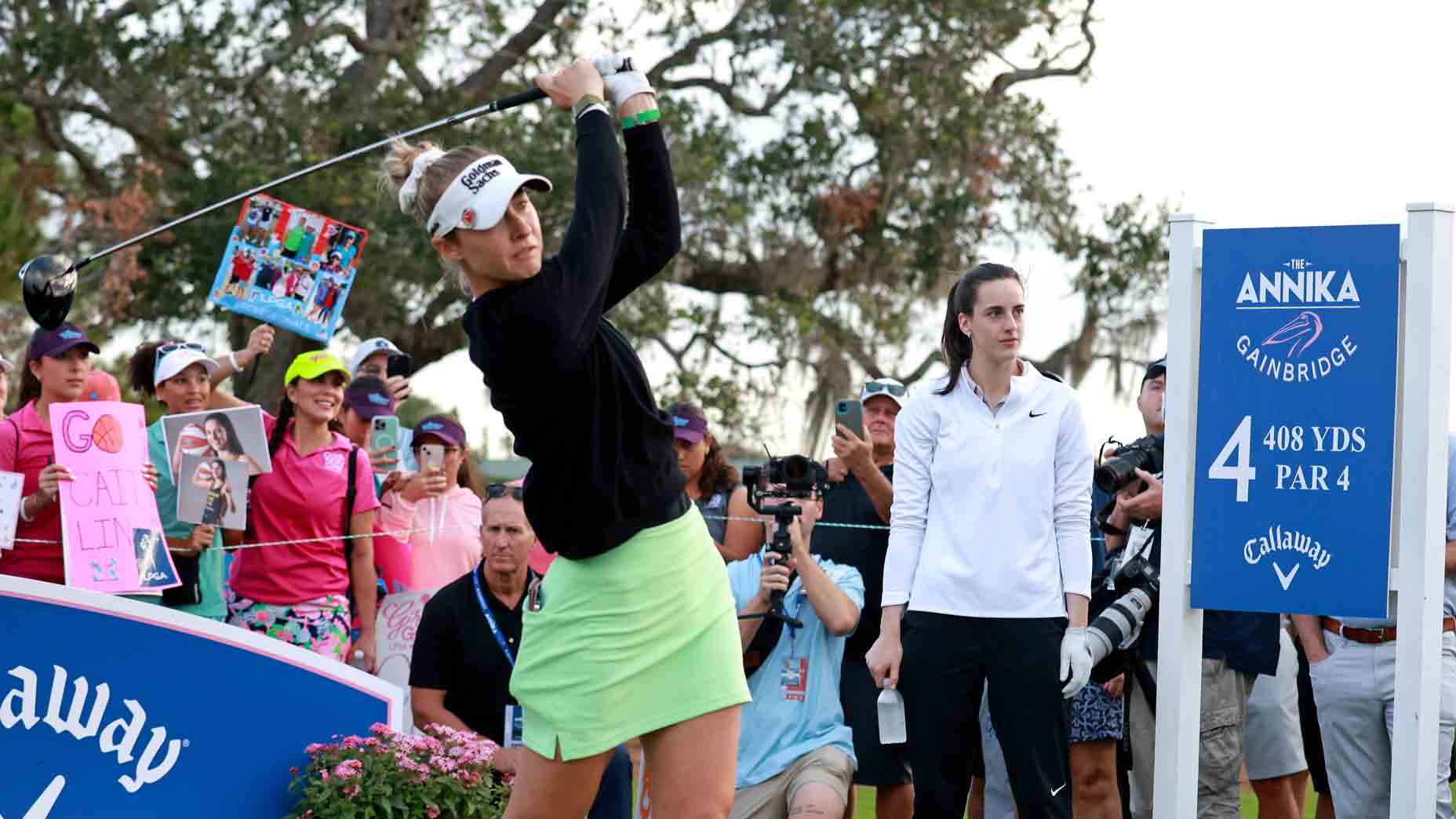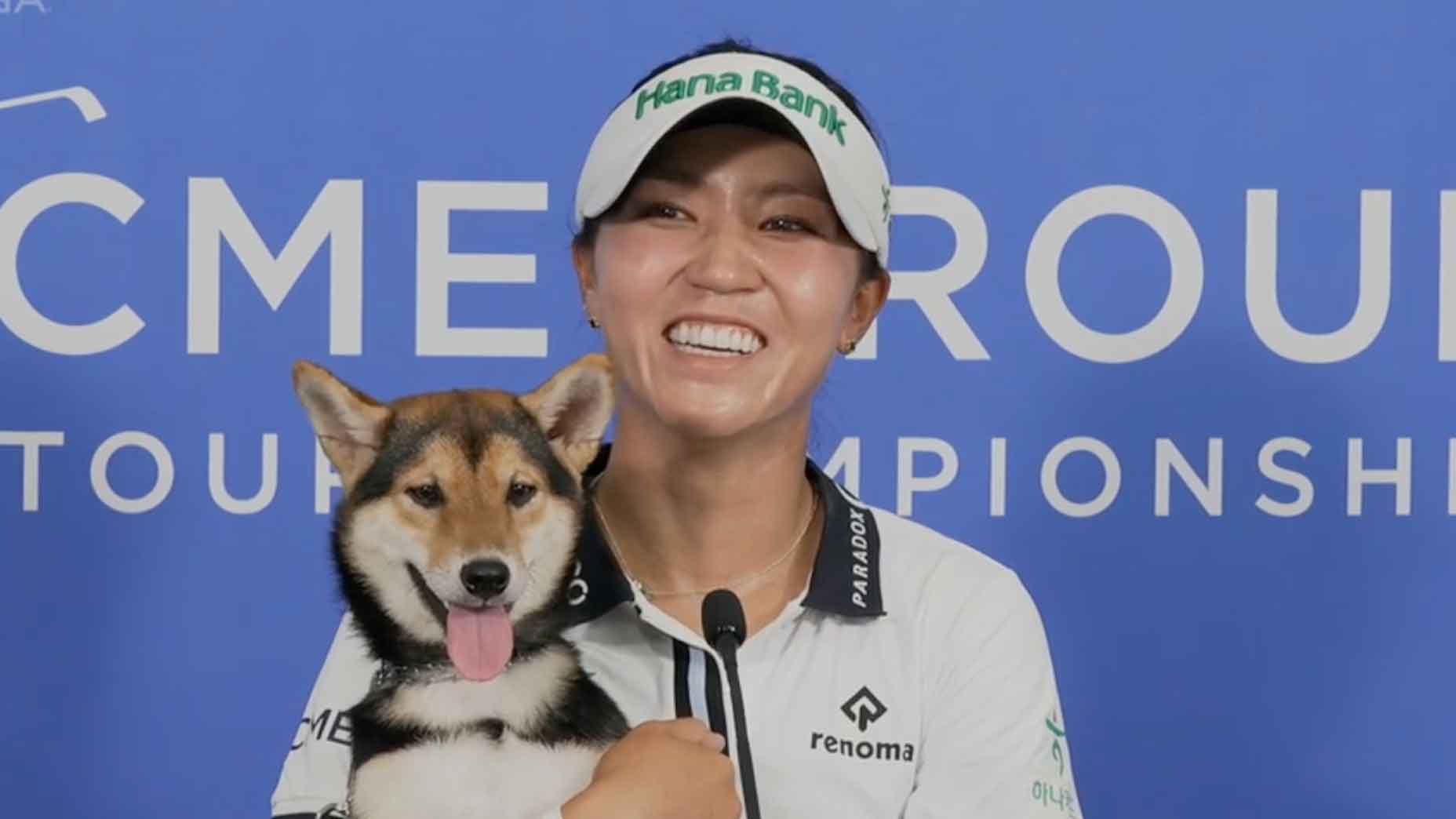 My nephew is looking to break 80. So I asked Nelly Korda for 1 tip
My nephew is looking to break 80. So I asked Nelly Korda for 1 tip
Unorthodox swing? Please. Here’s how Matthew Wolff’s 4 master moves can help you

Matthew Wolff, 20, has had an incredible 2019, winning the NCAA individual championship (as a member of the Oklahoma State University men’s golf team) in May and bagging the PGA Tour’s 3M Open in just his third pro start less than six weeks later. Thriving in both the amateur and professional ranks in the same calendar year, to say nothing of the same summer, harkens to one of golf ’s oldest clichés: It’s a game of opposites.
Matthew’s unorthodox swing may be hard to fathom at first, but the opposites theory holds true here, too. As in Newton’s Third Law: For every action, there is an equal and opposite reaction; despite on the surface looking like a confounding series of events not easily explained, they are, and if you take time to absorb them, you can actually improve your game.
Truth is, Matthew Wolff has a great swing. The greatest thing about it? It works! It belies convention, but it’s rich in the fundamentals that matter most: consistent contact, power and accuracy fueled by four “Master Moves” that would elevate any swing. Try them on for size. They’ve helped Matt become an immediate superstar. Let’s hope for an equal reaction in your game, too.
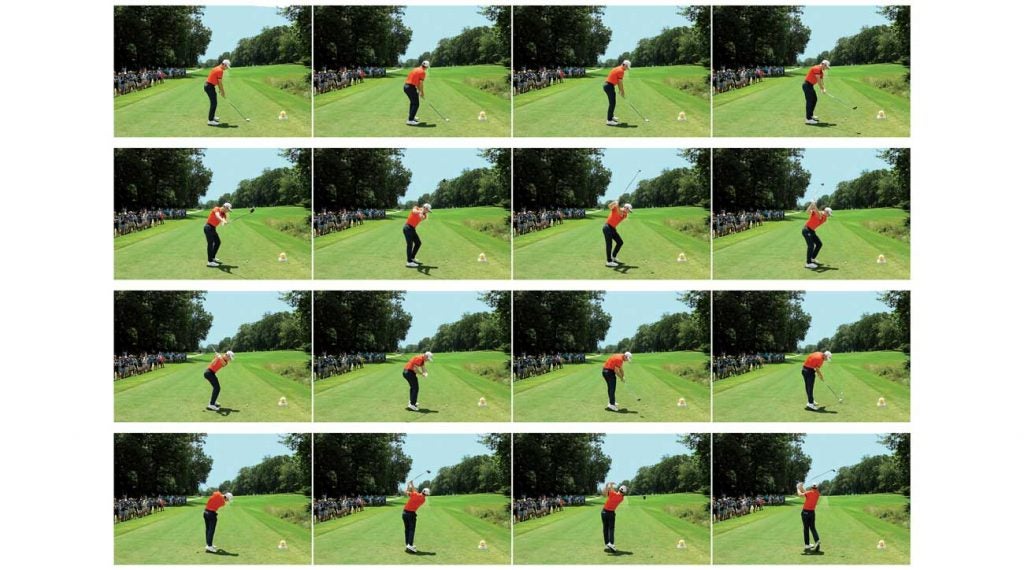
Master Move No. 1: Trigger your hips at setup
Matthew has a distinctive pre-shot routine designed to lend the feeling that he’s starting every swing the same way. This is a must for all golfers, because creating a consistent process dramatically reduces your margin for error.
Just before he stands back, Wolff pushes the shaft forward while turning his right hip toward the target, sort of in a mock post-impact position. It happens in the blink of an eye, followed by an immediate extension of his right hip in the opposite direction (see illustration below). It’s anything but a classic, one-piece takeaway, but it creates an athletic (rather than static) start to the swing while helping create a wider range of motion on the way to the top.
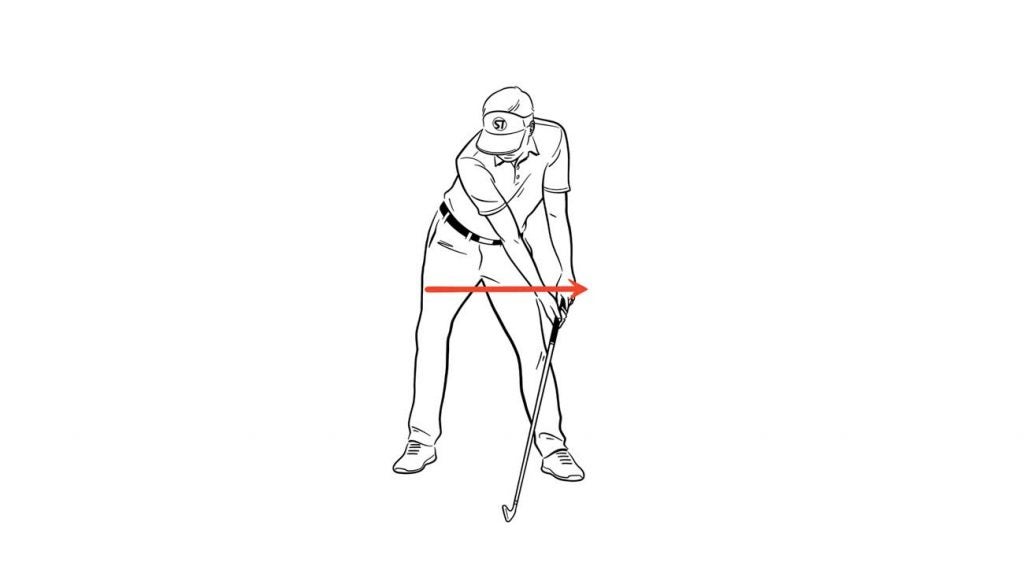
Master Move No. 2: Let your spine tilt left
We propel ourselves by flexing and extending our legs via knee bend. Without the extension part, we’d barely be mobile, even while taxing other parts of the body to pick up the slack. This all very much applies to the swing — proper leg action increases motion and prevents certain areas of the body from getting overworked.
Matt’s legwork is fascinating. As he starts the club back, he bends his front knee (with the help of lifting his front heel off the ground) while extending his back leg almost dead straight (see illustration below). As a result, his left hip tilts down and his right hip tilts up and to the right. More significant, it gets his spine tilting a little bit more toward the target. The leftward movement of his spine and the rightward action of his hips help create massive torque. Standard instruction says to move with the club and “sit” into your right side. Matt proves that the opposite can be true. And who’d argue with his 309-yard driving average?
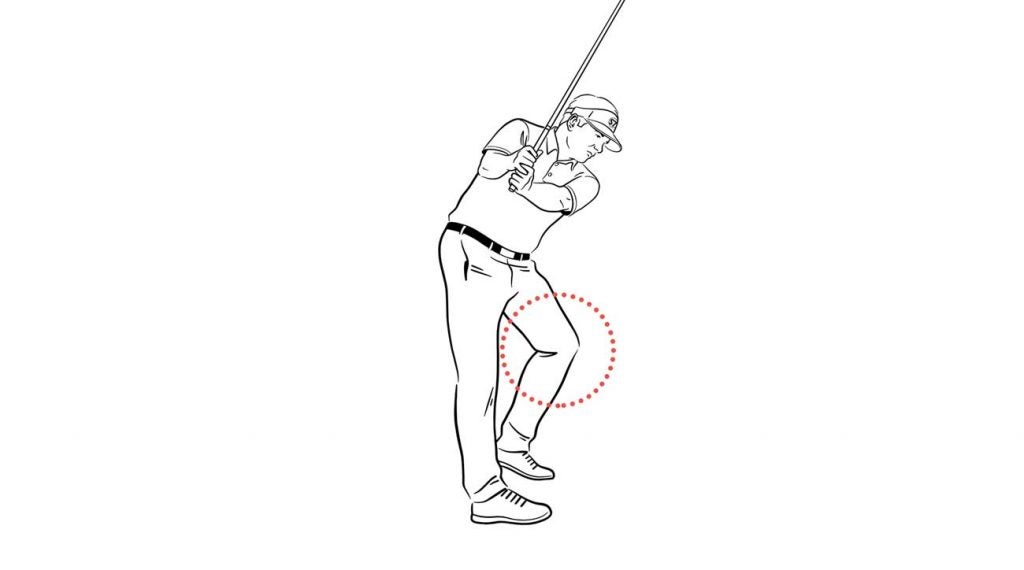
Master Move No. 3: Let your elbow rise
Because of what happens in move 2, Matt’s right elbow lifts off his chest, forcing the clubhead way outside his hands (see illustration below). It’s probably the most unique feature of his swing.
ADVERTISEMENT
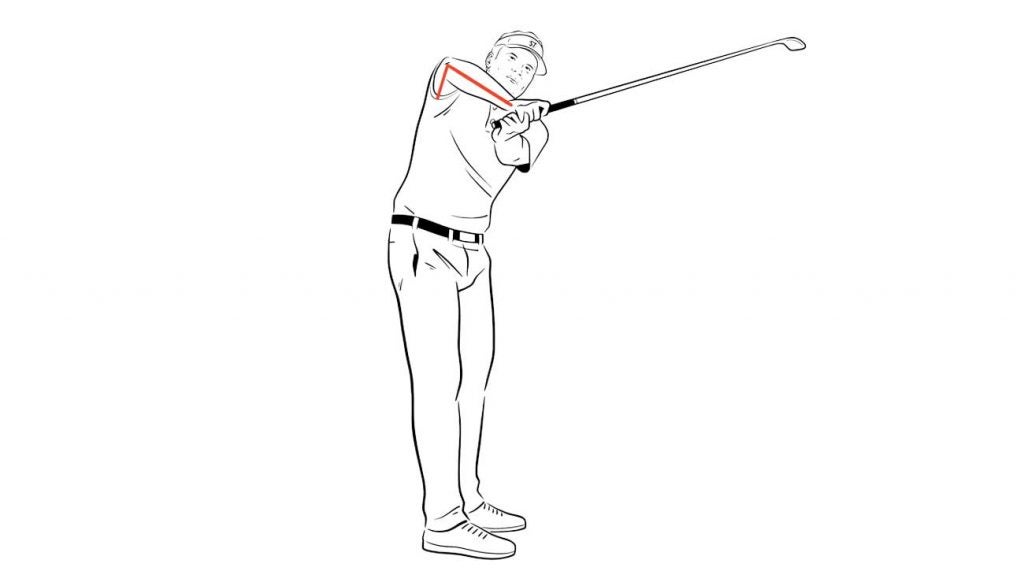
Many players have performed variations of this type of takeaway over the years (Fred Couples, Kenny Perry and Miller Barber come to mind), but none to the degree of Irishmen Jimmy Bruen. Google his swing. Bruen’s and Wolff’s careers are separated by 70-plus years, but it’s like looking at the same player.
When Matt reaches the top, his clubhead is hovering high over his head. As he starts back down, he drops his right elbow and re-pins it to his chest (see illustration below). The club responds by immediately flattening out, as if it’s falling behind him. (Notice how his left wrist bows to facilitate the fall.) Not only does this move return the shaft to a more conventional delivery position, it also ramps up his power. Re-pinning his right elbow to his chest gets the shaft and his body moving in opposite directions. It’s as if he’s getting ready to snap a whip, and it explains how Matthew can reach clubhead speeds in excess of 125 mph.
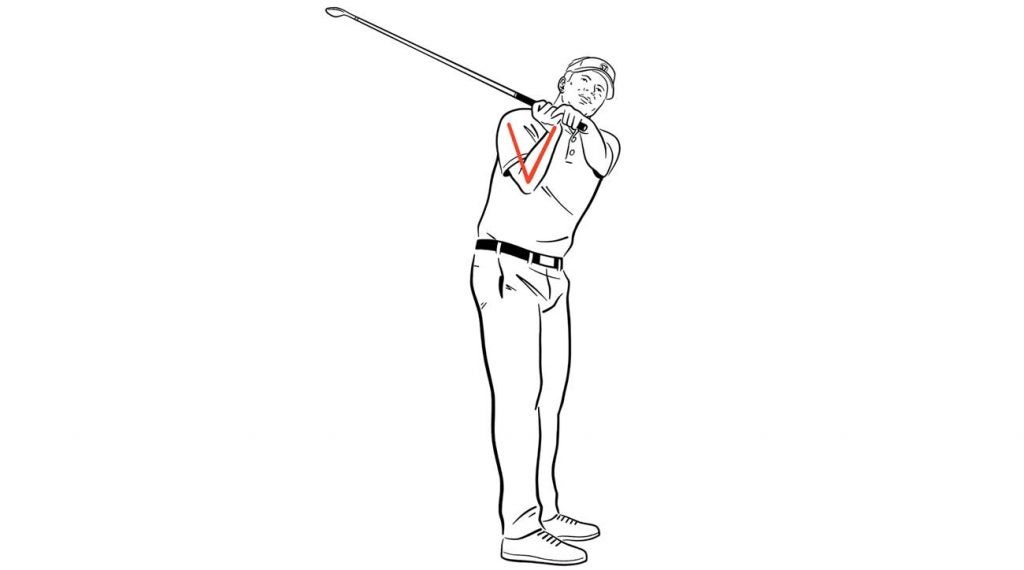
Master Move No. 4: “Snap” your lower body
With the shaft so flat in the early part of the downswing (see left-side illustration below), Matthew risks getting “stuck” at impact or blocking shots out to the right. He avoids it by “snapping” his legs straight as soon as he re-pins his elbow. The move serves to pull his hands, arms and club around his spine and into an ideal impact position. The degree of muscular activation needed to break the momentum of the club dropping behind him is staggering, but it’s what makes Matthew’s swing so intriguing to watch.
Another interesting aspect of Matthew’s downswing that can help you avoid misses to the right is the way his belt level raises while he slides his trail foot backward through impact (see right-side illustration below). This effectively closes his knees and hips to the target without him having to over-rotate his shoulders. I liken the breaking movement of Matthew’s feet, knees and hips to that of a bowler, who creates upward force just before flinging his arm around his body and letting the ball release down the lane. It’s a dynamic motion that’s rarely taught to weekend players yet used by many of the game’s most accomplished and powerful players. The next time you watch a tournament on TV, keep an eye on how the likes of Rory McIlroy, Justin Thomas and Lexi Thompson dynamically load and then break to transfer energy and momentum from their body to the club.
Move 4 is what makes all the others work — Matthew’s swing is definitely one in which the sum outweighs all of its parts. It’s athletic and delivers boatloads of speed — and certainly worth every weekend player’s effort to give it a whirl.
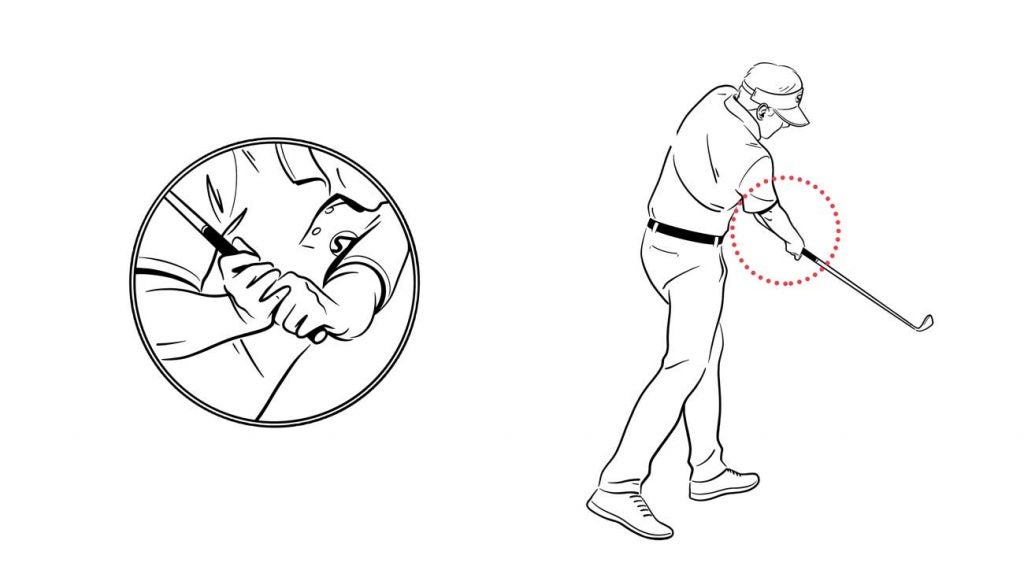
To receive GOLF’s all-new newsletters, subscribe for free here.
ADVERTISEMENT


